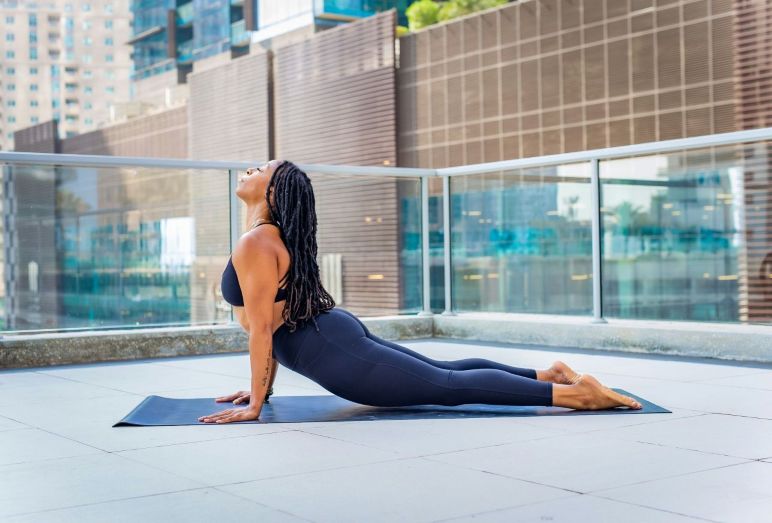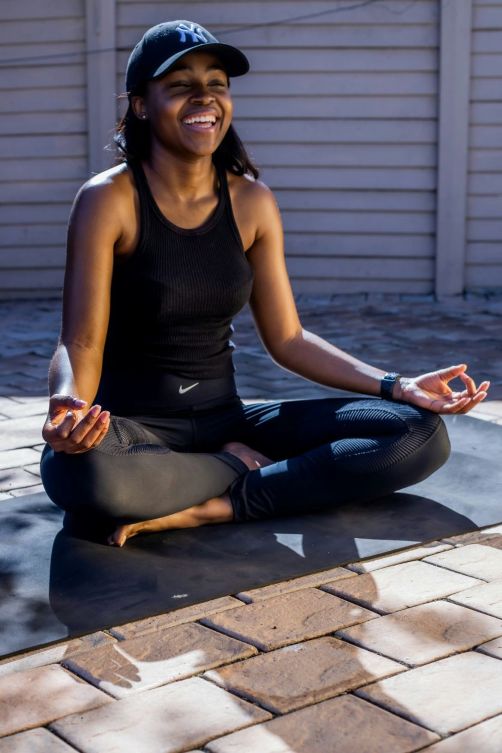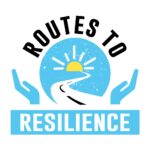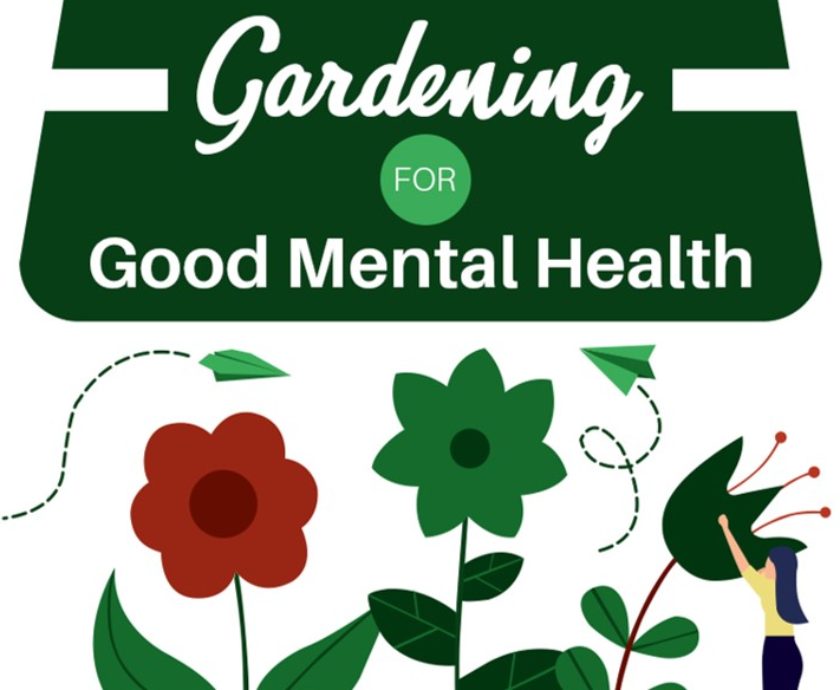Today’s blog post comes from Jay Robinson, our Project Assistant who is also a yoga instructor. Jay explores the connection between yoga and mental health in this article. Drawing from personal experience and scientific research, Jay highlights how simple, consistent yoga practices can calm the mind, reduce stress, and support emotional well-being, offering readers practical tips for weaving mindfulness and movement into daily life

In a world with so many pressures and expectations, maintaining our mental health is one of the most important things for well-being.
Mental health awareness has always been an important topic, countless research has been done to answer questions about anxiety, depression, post-partem depression, and many other mental health conditions. And many of those studies have found yoga greatly improves mental health.
How Yoga Can Calm Your Mind
If you’re anything like me, you almost always have 100 thoughts racing through your mind at once. The endless list of things to do, people to speak to, phone calls to make, dinner plans, family drama, and work stress all play a never-ending game of hide and seek in your brain. You find yourself with clenched jaws, tight shoulders, restless nights, and just moving from one day to the next.
Yoga gives your mind the chance to focus and breathe. Right now, before you read any further, sit up straight, close your eyes, and take a long, deep breath. As you exhale, did you feel your shoulders relax? Did you think of anything else besides that one breath? That’s how yoga can calm your mind. It’s more than just a workout—it’s an opportunity to reset. When you focus on holding a pose and breathing deeply, your mind shifts from that never-ending to-do list to the present moment. And that’s where the magic happens. Yoga helps lower cortisol, the stress hormone, and releases built-up tension. It’s like hitting the pause button for your mental health, giving you a much-needed break from the chaos.
Mindfulness and Breathing: The Power Combo
Our minds work on autopilot. We often go through our daily tasks without even thinking about them. How many times have we driven to work, only to realize we made every turn without even noticing? Or washed the dishes while our minds replay the last conversation we had at work? This constant stream of thoughts, distractions, and multitasking pulls us out of the present moment and keeps us stuck in a cycle of stress.
This is where mindfulness comes in. In yoga, mindfulness is about slowing down and being present with each breath, each movement. It’s the practice of tuning into what’s happening right now, rather than letting your mind wander to past worries or future stress. Pair that with pranayama—breathing exercises—and you have a powerful combination. Deep, conscious breathing activates the parasympathetic nervous system, calming your body and mind. It’s like telling your brain “Hey, it’s ok to slow down”.

Bringing Yoga in your Daily Life
There may be a misconception about what yoga is and how to practice. Many people think it requires long sessions or a strict routine, but here are a few truths that might surprise you:
Yoga doesn’t have to be an hour-long practice every day. In fact, incorporating small amounts of yoga (20 minutes) several times a week can have a huge impact on your mental health. The beauty of yoga lies in its adaptability—it’s not about how long you practice, but about how often you create space for your body and mind to reset.
Start by adding just a few minutes of yoga to your day. Try stretching when you wake up to loosen up your body after a night’s rest. This simple act of mindful movement can help wake up your muscles and set a positive tone for the day ahead. During your lunch break, instead of scrolling through your phone or rushing through your meal, take a couple of deep breaths and stretch. It only takes a minute or two, but the moment of calm can give you a break from your stress and recharge you for the afternoon. Before bed, add some calming poses to your nightly routine to help you wind down. A few minutes of gentle stretches or restorative poses can help relax your body, ease tension, and improve the quality of your sleep.

The key is consistency, not duration. Just a little yoga, even a few minutes here and there, can bring big benefits to your mental wellness. Yoga doesn’t have to be a major time commitment—it can be a series of small practices scattered throughout your day that add up to a much greater sense of peace and balance.
Yoga and Mental Health: The Science Behind the Calm
Through my yoga training, I not only learned about the rich history of yoga but also the science behind the movements and the reason behind the breath. Yoga isn’t just about stretching; it’s about using the body and mind together to bring healing and balance. Research has shown that regular yoga practice can do much more than ease physical ailments—it has been proven to help reduce symptoms of anxiety, depression, and even PTSD. In one study, participants who practiced yoga for just eight weeks reported improved emotional resilience and a reduction in depressive symptoms. Read the study here.
That said, yoga should not replace medical help or therapy. Rather, it can be a complementary treatment, working alongside traditional medicine to support your mental health journey. Yoga provides valuable tools for regulating emotions and managing stress. By combining physical movement, mindfulness, and breathing, yoga offers a holistic approach to mental health that is both preventive and therapeutic.

Take the First Step Towards Mental Wellness with Yoga
Yoga is a powerful practice that can help improve your mental health, but it’s just one piece of the puzzle. If you’re feeling overwhelmed, stressed, or struggling with emotional challenges, I encourage you to seek support from local mental health resources. Remember, yoga works best when it’s part of a holistic approach that includes professional care and therapy.
If you’re in St. Kitts and Nevis looking for mental health support, reach out to your local mental health services. If you’re not sure where to start, I’m happy to connect you with trusted resources. Just let me know, and I’ll be glad to help guide you on your journey to wellness.
And if you’re looking to explore yoga as part of your wellness journey, I offer private yoga sessions tailored to your individual needs—whether you’re looking to reduce stress, improve flexibility, or find some peace of mind. Reach out to me for more details on how yoga can support your mental health, and let’s work together to create a personalized practice that helps you feel your best.












Such a great and helpful article That should be shared with other Countries and Government!
Thank you for visiting our website and taking the time to read this blog post. We’re really glad you found it useful.